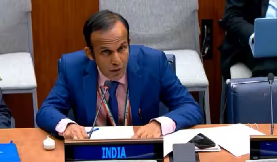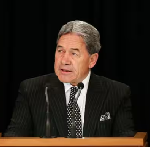India has hit back at Pakistan’s criticism of the recent Kashmir elections, saying Islamabad’s disappointment stems from its own familiarity with “sham elections” and suppression of political voices. “Sham elections, jailing of Opposition leaders, and silencing political voices are what Pakistan knows well. It’s no surprise that they’re disappointed to see genuine democracy in action,” said Eldos Mathew Punnoose, a counselor at India’s UN Mission, on Monday.
“Given their tarnished democratic track record, Pakistan views real democratic processes as a sham, as shown in their statement,” he added, addressing comments made by Pakistan’s Permanent Representative, Munir Akram, at the General Assembly’s Special Political and Decolonisation Committee.
Punnoose highlighted the successful election in Kashmir, where millions of voters exercised their right to vote and elected their leaders according to the Constitutional framework and universal adult suffrage. “Clearly, these terms must be alien to Pakistan,” he added.
In the first elections after the 2019 revocation of Kashmir’s special status, over six million voters participated, electing a coalition of the National Conference and the Congress Party, which defeated the ruling Bharatiya Janata Party at the Centre. Earlier, during the debate on decolonisation in the Fourth Committee, Akram labeled the elections a “sham.”
Punnoose urged Pakistan to “stop the serious and ongoing human rights violations in Pakistan-occupied Jammu, Kashmir, and Ladakh (PoJKL).” “The world is witness to the divisive activities that Pakistan tries to undertake day in and day out,” he added criticising Pakistan’s human rights record.
He pointed out Pakistan’s history of state-sponsored terrorism and cross-border attacks, including targeting India’s Parliament, market places, and pilgrimage routes. “Pakistan consistently uses cross-border terrorism against its neighbors,” he said. The list of attacks backed by Pakistan is extensive. They’ve targeted our Parliament, markets, and pilgrimage sites, affecting ordinary Indian citizens with such heinous acts,” he added.
“India stands for pluralism, diversity, and democracy, while Pakistan is a reminder of terrorism, narrow-mindedness, and persecution,” Punnoose said. “Religious and ethnic minorities, along with their places of worship, face regular attacks and vandalism,” he noted. Thus, “it’s crucial for Pakistan to first look inward and sort out its own issues rather than interfering in the affairs of neighboring countries,” he concluded.
When Pakistan held its national elections in February, opposition leader and former Prime Minister Imran Khan and many of his supporters were imprisoned and barred from running. Restrictions on the opposition hindered their campaigning efforts. The military-controlled elections were marked by violence, and cell phone services were cut off to stop voter mobilization.



